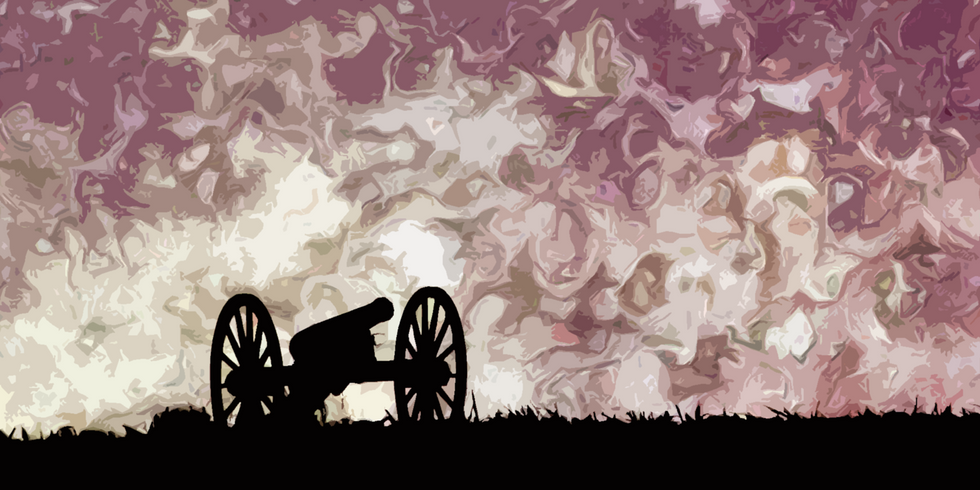I was inspired to write this article based on the 58th idea that a fellow member wrote about in his article about coming up with new article ideas. I figured that this would be an interesting option for me to delve into my historical knowledge and synchronize myself within the Animus (if you will). I looked back on print-outs of my maternal family's genealogy from a CD-ROM program titled Family Archive #110: Social Security Death Index.
For the deceased family member I would choose to meet, I would very much like to meet my ancestor, who was a first-generation American around the time the Civil War happened. He was born to a father from a German town named Baden and a mother from Alsace-Lorraine. From what I can deduce, he was around 14-years-old when he would have served in the Civil War on behalf of the Union. So, since he was the teenaged son of an immigrant family, I highly doubt he had any choice in the matter.
I would like to ask whether he acclimated himself into the Union army as a liberator, or whether he did it because he never had any other choice. If he did any actual fighting, I would like to ask how he thought of his Confederate enemies. Did he revile them as traitors, or find commonality as men who were also conscripted to fight a war they themselves did not choose to fight in? I would find some interesting insights into my maternal ancestor, considering an important lesson learned in my Oral History class, which is that every person remembers a historical event differently from everyone else.
Upon my research, I also found that he had a brother named after George Washington, which I can imagine his parents did so in order to assimilate themselves faster into American society by naming their American-born son after one of the Founding Fathers. I would like to ask him if that was the case and what his own personal attachment was to America's history.
I would also like to ask him why he decided to stay here in the United States. It would be curious to ask what motivated him to settle down as a machinist in Newark instead of returning to Germany or Alsace. Did he consider America his birthplace and his home? I do not know if there was any anti-German sentiment prior to World War I, but I would ask him how much of it he dealt with, and if he did, then how it may have caused him to empathize on some level with the plight of black slaves fleeing the Confederacy. As a first-generation American, how did he get along with the immigrants from Ireland, Italy and all over Europe? Considering how his wife was an Irish immigrant, I would think that he developed a sense of community among her family members.
As an aspiring linguist, I would like to ask him how much of the German, as well as the Alsatian dialect, he knew, whether in phrases or songs. I would also like to learn how he picked up English from his American compatriots, whether in grammar school, in the barracks, or in the machine shop where he would later work. Also, whether it had to do with attempting to acclimate himself to American life or to prove his tormentors wrong about his being just an "ignorant hun." Since his wife was an Irish immigrant, I would like to ask if she knew any Irish Gaelic. Perhaps if they used German, Alsatian German, or Irish Gaelic as coded languages between themselves while speaking English outside of the house.
It may appear trivial, but since my maternal family surname, Stoeckel, is pronounced [stoh-kul], and that it is German in origin. I would like to ask how exactly it is pronounced. Is it sounded as [shter-kul], the same way that Goethe is [ger-tuh]? Another trivial question I would ask is that considering how his name, Joseph, is a common name in my maternal family, what would they call him in order to differentiate himself from the other "J" names.
I think the questions that I would conclude would be the ones that would reflect on his own descendant. I would ask him what advice he would give me to lead the productive life he did. It would definitely be an interesting way to connect with my ancestry by interviewing a distant ancestor and I think that his account would offer me in-sight into the process of becoming American.
















